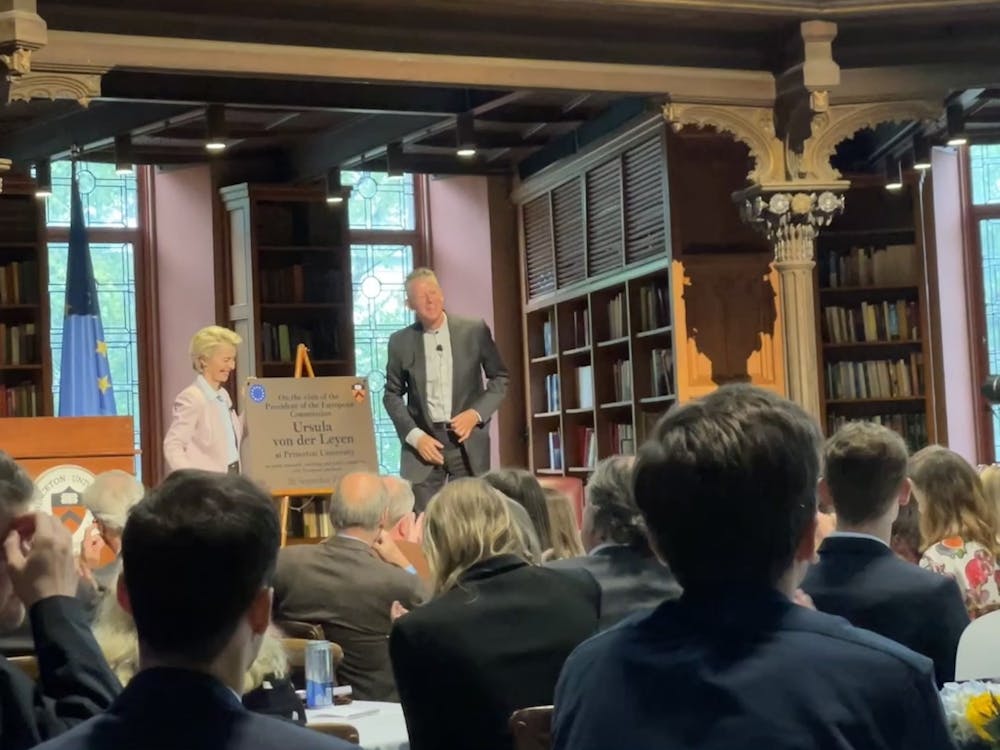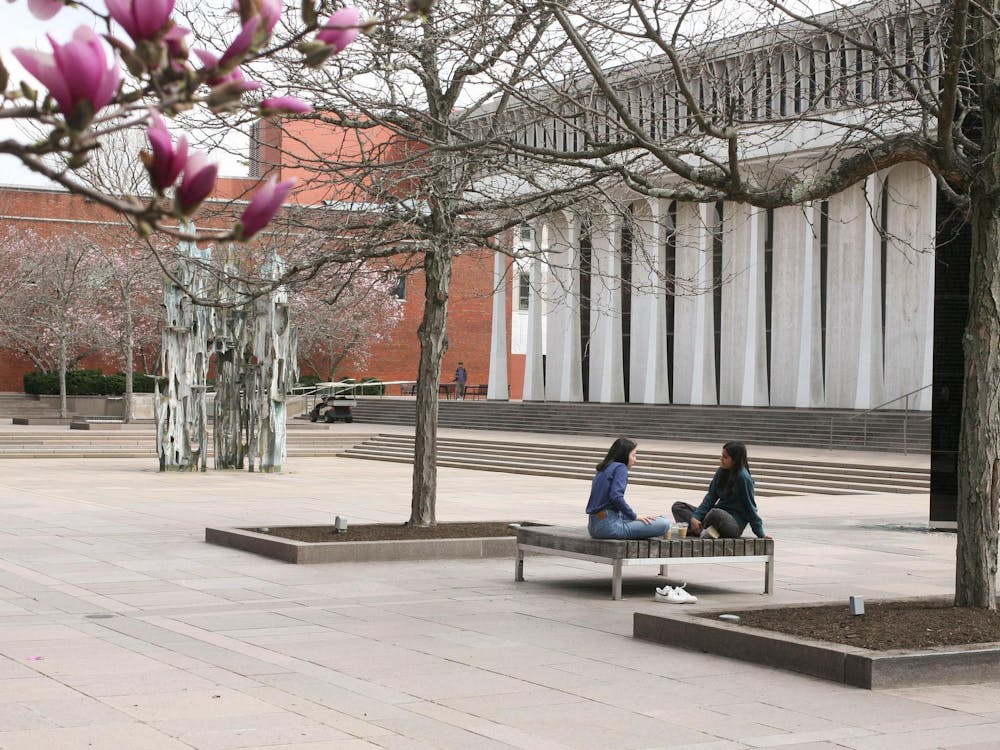Content Warning: The following article contains descriptions of war and violence.
“When I went there, I saw mass graves; I saw the body bags lying there — men, women, children. I saw these brutal scars of missiles and bombs that had been aimed deliberately at residential areas, hospitals, schools kindergartens,” European Commission President Ursula von der Leyen said, describing her trip to Bucha, a town liberated by Ukrainian forces just days before her visit.
The war, she said, “is not only a war that Russia has unleashed against Ukraine. This is a war on our values.”
On Thursday, Sept. 22, von der Leyen spoke on campus, delivering the keynote address for Princeton’s “Europe’s Moment” event. Her speech focused on the importance of democracy, the European Commission’s response to the war in Ukraine, and the fight against climate change.
In response to the invasion, von der Leyen emphasized the necessity of close cooperation between the United States and the European Union (EU) in levying sanctions against Russia, as well as the shift in energy sourcing among EU nations.
In the vein of a larger discussion on Europe’s prior energy dependence on Russia, von der Leyen said, “Putin has built very strategically, and later on used, our dependency to blackmail us, basically to suffocate us.” However, she added, “This blackmailing has really united us. And it is a turning point, because we have decided, as a European Union: We will end our reliance on Russian fossil fuels.”
To achieve this, she called for massive investments in renewable energy, a strategy that includes diversifying energy sources to “regions where the [renewable] resources are in abundance.”
In addition to energy independence, these geopolitical shifts are also “fighting the right cause against climate change,” she said. Von der Leyen referred to the example of Pakistan to illustrate the urgency of the climate crisis and the international cooperation required to address it.
“I had yesterday a bilateral meeting with the Prime Minister of Pakistan: three-quarters of [his] country is inundated — climate change, it is nothing but climate change,” she said. In order to address climate change, von der Leyen continued, “We need to develop a way of life and work that gives our planet a real fighting chance for the next generation.”
To achieve this, the European Commission has legally mandated goals for climate neutrality by 2050.
“We are the first highly industrialized continent that has put a concrete plan on the table on how we want to get there,” she said.
Von der Leyen also noted, “The green transition, but also the digital transition, will massively increase our needs for raw materials. Lithium for batteries; silicon metal for chips; rare earths to produce magnets, for example for electric vehicles.”

She expressed caution toward a monopoly on raw materials, explaining that the increased need for raw materials brings bad news.
“[China] dominates the market,” she said. “We have to avoid falling into the same trap and dependency as we did with oil and gas. So we have to be very careful not to replace one old dependency with a new one.”
Overall, the call to defend democratic values remained resonant throughout her address.
“Those who were lucky enough to be born and raised in democracies — like me — can often take the democracy just for granted,” she said. “Those who have lived in authoritarian regimes will know all too well how precious freedom is.”
Invoking the University’s informal motto of “In the nation’s service and in the service of humanity,” she specifically addressed the need for the Princeton community to stand up for democracy in the face of challenges from countries like Russia and China.
“Democracy needs us — each and every one of us,” she said. “I want to address you, the students, the faculty members, the administration here in this room. You have the privilege to study and work in an institution that is based on a long tradition to unveil truth … You have a mission.”
The event was held in the Chancellor Green Rotunda. It was organized by the Liechtenstein Institute, Princeton School of Public and International Affairs (SPIA), and the European Union Program at Princeton. It was moderated by SPIA Professor Andrew Moravcsik with an introduction by SPIA Dean Amaney Jamal.
A Q&A followed von der Leyen’s speech. At the end of the event, Moravcsik unveiled a plaque dedicated to von der Leyen’s visit “to mark research, teaching, and policy initiatives with European partners.”
Michelle Miao is a news and newsletter contributor for the ‘Prince.’ She can be reached at mm3350@princeton.edu, @michxllem on Twitter, or @_michelleiao at Instagram.
Jackie Zhou is a news and newsletter contributor for the ‘Prince.’ She can be reached at jacqueline.zhou@princeton.edu or @jacq363 on Instagram.








